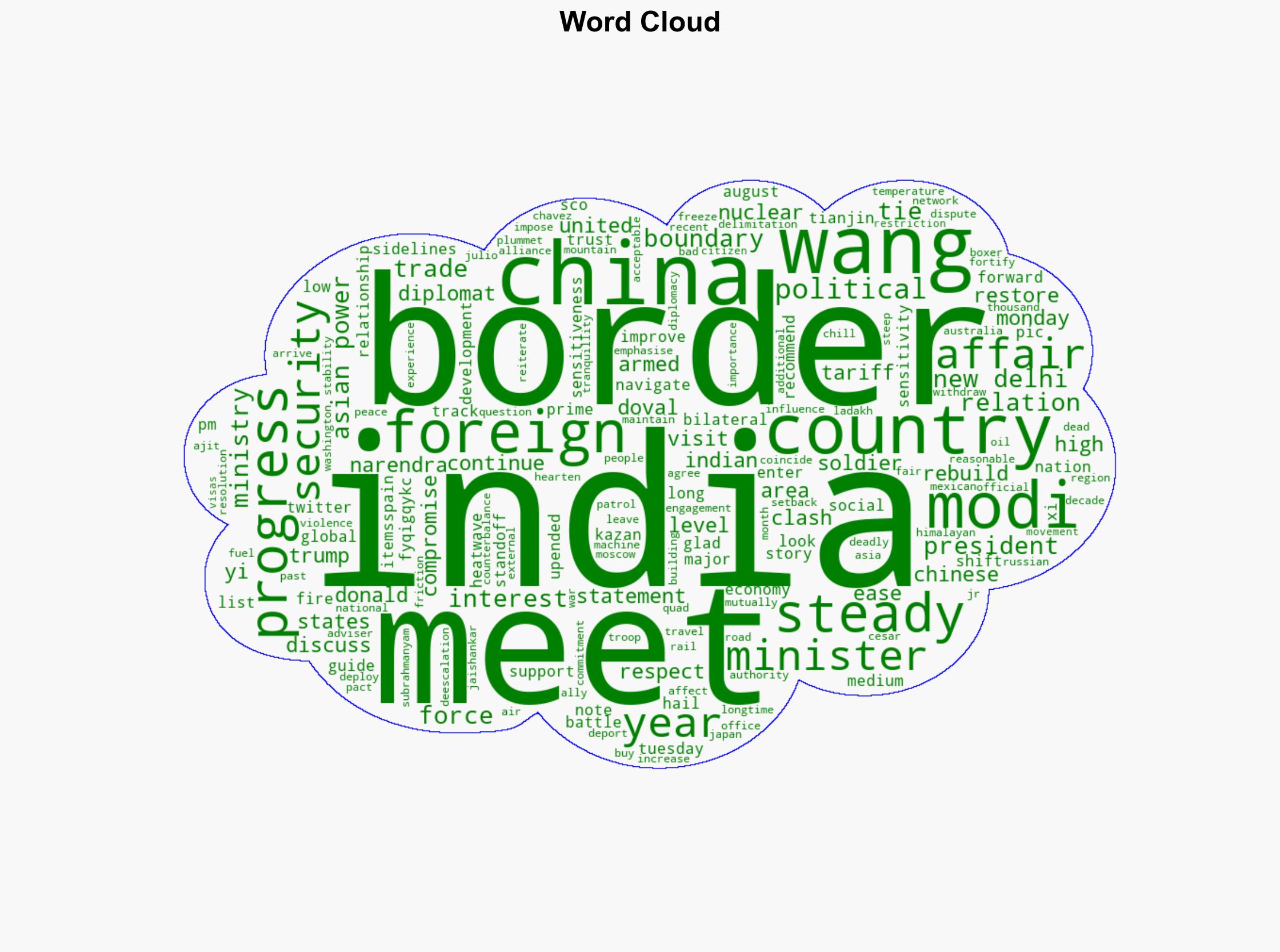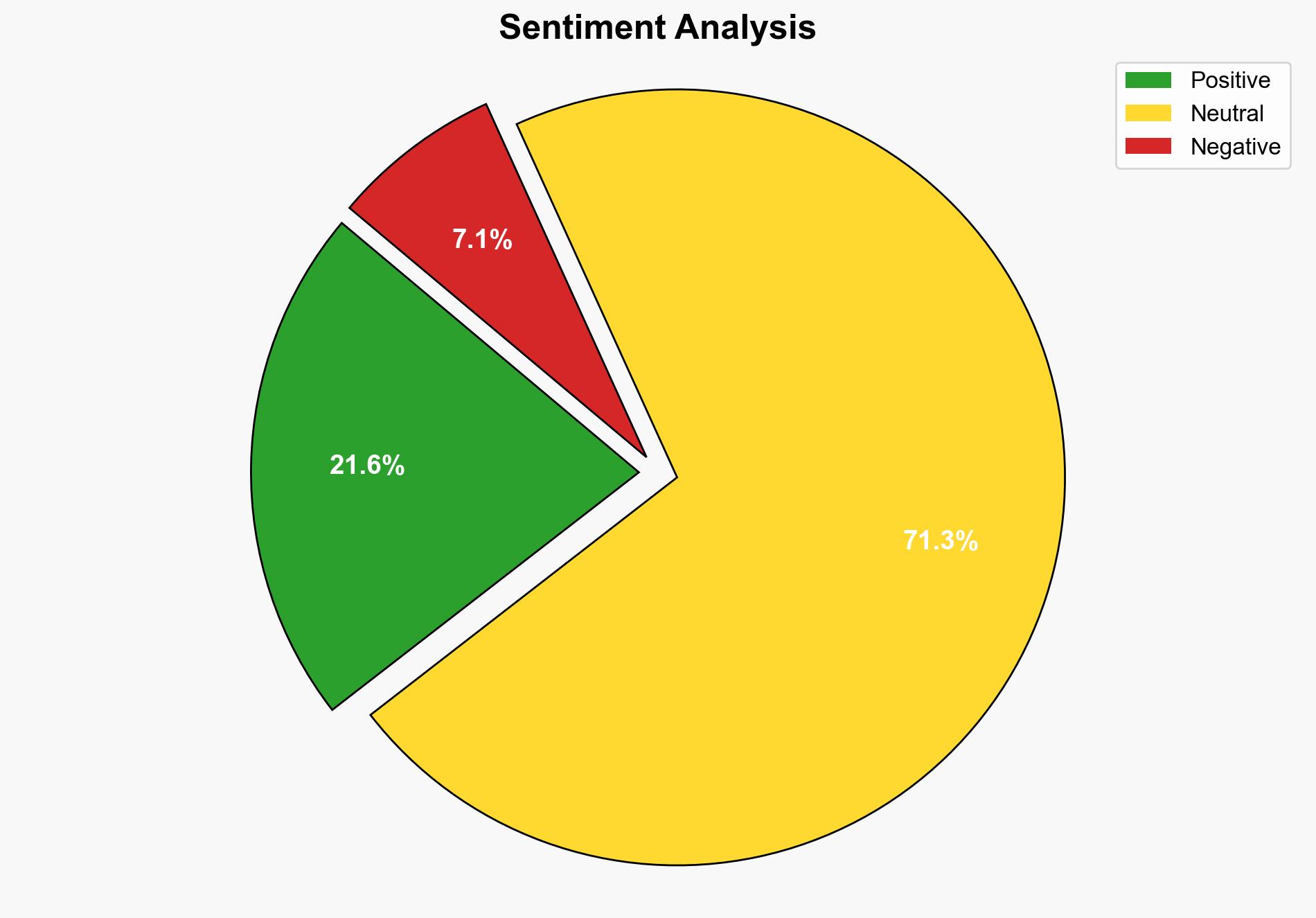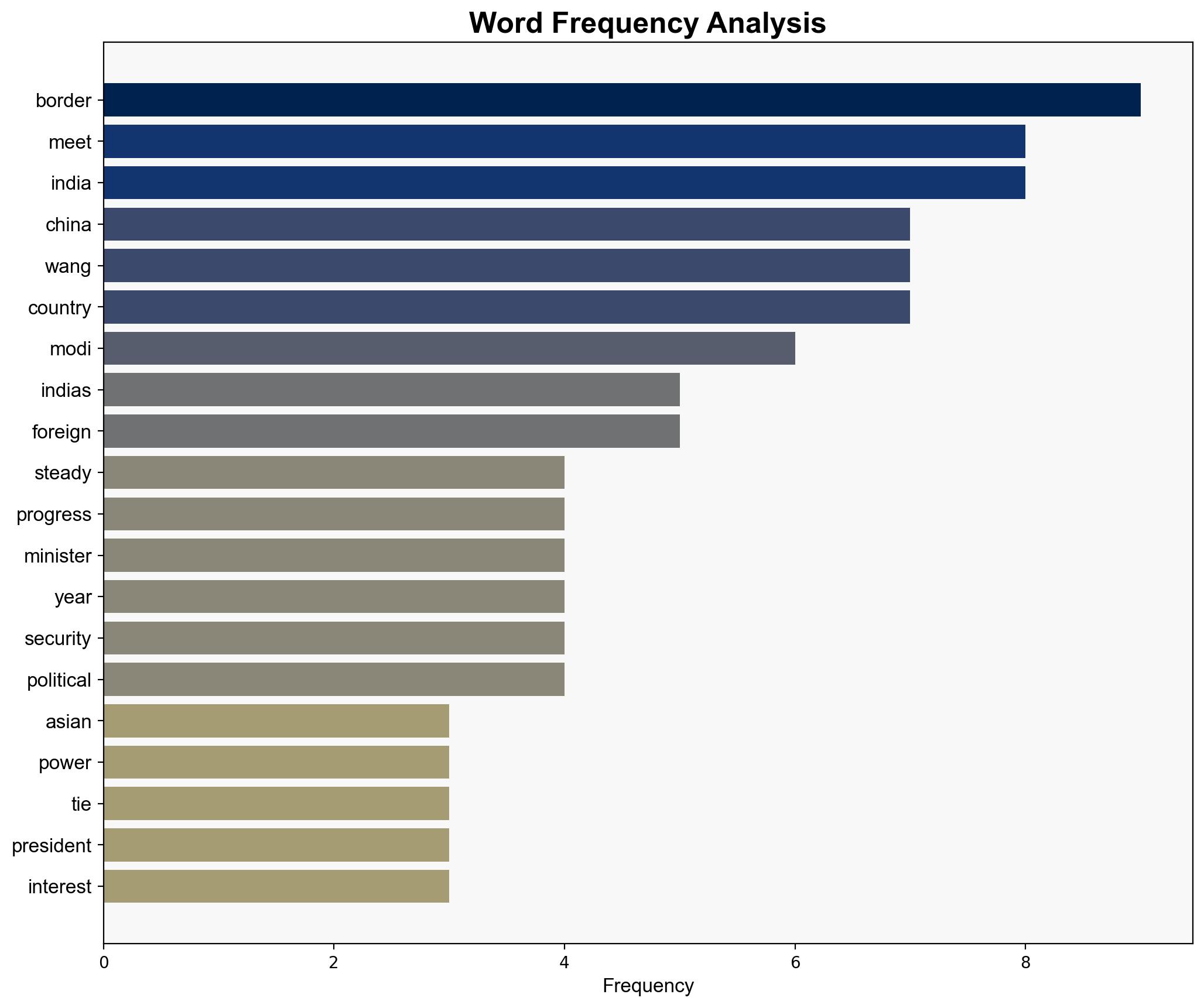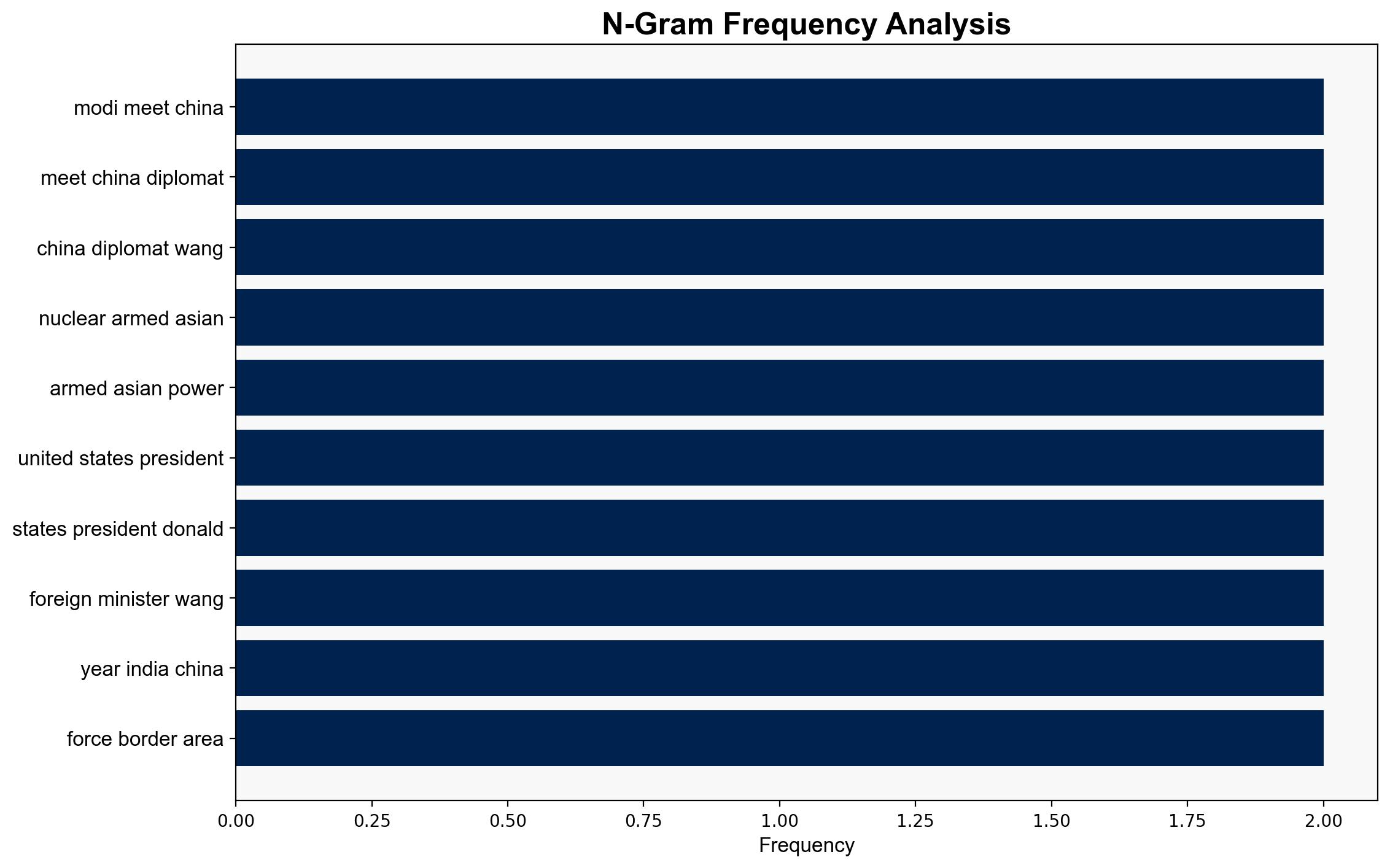Indias Modi meets Chinas top diplomat Wang as Asian powers rebuild ties – Al Jazeera English
Published on: 2025-08-19
Intelligence Report: Indias Modi meets Chinas top diplomat Wang as Asian powers rebuild ties – Al Jazeera English
1. BLUF (Bottom Line Up Front)
India and China are cautiously rebuilding diplomatic ties following a period of heightened tension, with a focus on resolving border disputes and enhancing economic cooperation. The most supported hypothesis is that both nations are motivated by strategic economic interests and regional stability concerns. Confidence Level: Moderate. Recommended action: Encourage diplomatic engagement while monitoring for signs of regression or deception.
2. Competing Hypotheses
1. **Hypothesis A**: India and China are genuinely committed to improving bilateral relations to enhance regional stability and economic growth. This hypothesis is supported by recent diplomatic engagements, mutual statements of respect, and efforts to de-escalate border tensions.
2. **Hypothesis B**: The diplomatic overtures are primarily superficial, driven by external pressures such as U.S. tariffs and regional alliances, with underlying tensions likely to persist. This view considers the historical volatility of India-China relations and ongoing military fortifications at the border.
Using Bayesian Scenario Modeling, Hypothesis A is slightly more supported due to the consistent diplomatic engagements and mutual economic interests, despite the historical context that supports Hypothesis B.
3. Key Assumptions and Red Flags
– **Assumptions**: Both nations prioritize economic stability over territorial disputes; diplomatic statements reflect genuine intentions.
– **Red Flags**: Continued military build-up at the border; lack of substantial progress on key issues like border delimitation.
– **Blind Spots**: Potential influence of third-party actors (e.g., U.S., Russia) on bilateral relations; internal political pressures within India and China.
4. Implications and Strategic Risks
– **Economic Risks**: Failure to resolve disputes could disrupt trade and investment, impacting regional economic growth.
– **Geopolitical Risks**: Persistent border tensions could escalate into conflict, drawing in regional allies and affecting global stability.
– **Psychological Risks**: Nationalistic sentiments may hinder diplomatic progress, increasing domestic pressure on leaders to adopt hardline stances.
5. Recommendations and Outlook
- Encourage continued diplomatic dialogue and confidence-building measures between India and China.
- Monitor military activities and rhetoric for signs of escalation.
- Scenario Projections:
- Best Case: Successful resolution of border disputes leads to enhanced economic cooperation and regional stability.
- Worst Case: Breakdown in talks results in renewed border conflicts and economic sanctions.
- Most Likely: Slow progress with intermittent setbacks, maintaining a fragile peace.
6. Key Individuals and Entities
– Narendra Modi
– Wang Yi
– Subrahmanyam Jaishankar
– Ajit Doval
7. Thematic Tags
national security threats, regional focus, economic diplomacy, border disputes




